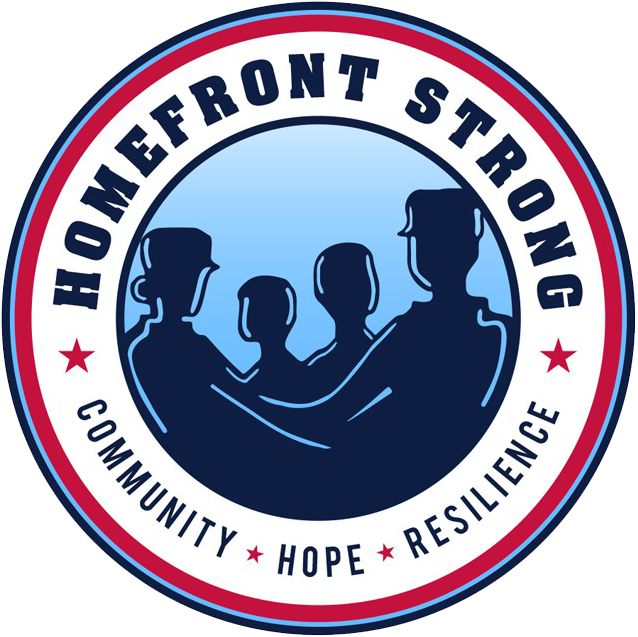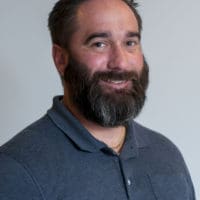Ryan Casavant
After Ryan Casavant was honorably discharged as a sergeant in the U.S. Marine Corps, he thought his return home was going swimmingly.
“I was 24 when I went in [to the Marines] and 28 when I got out,” he says. “When I got out, I moved in with my mom and dad, so yeah … But I was working at a security company and I met my wife.” Then, one day at work, he collapsed. It was a result of a spinal injury he’d suffered while serving (two combat tours — one in Iraq and one in Afghanistan) and, for the next nine months, he was in “a dark hole.” He didn’t go out and was acting more hostile to his family members. His parents finally gave him an ultimatum and that’s when he heard about Home Base.
The treatment he received from the Massachusetts-based nonprofit was uplifting — and expansive. Casavant participated in studies for Traumatic Brain Injury and sleep disorders. He had counseling that helped him deal better with his family. He and his fiancée took part in couples counseling and learned things they still use, now that they’re married.
His faith was also reawakened. “I said a lot of prayers,” he says. “I’d gotten away from it for awhile and it’s still a work in progress. But I know I’m never going to get away from the Post-Traumatic Stress symptoms.”
Now, Casavant works for Home Base, as a veteran outreach coordinator. He’s also worked with Project Odyssey at the Wounded Warrior Project and is an ordained minister. He’ll participate in Almost Home, a workshop for veterans and veteran supporters. The workshop is scheduled for 9 a.m. to 2 p.m. Wednesday, Oct. 11, at Open Spirit, 39 Edwards St., Framingham.
As part of a panel of veterans and those who work with veterans, Casavant plans to tell his own story and then tell others about Home Base. The nonprofit was founded by the Red Sox Foundation after the baseball team made a trip to Walter Reed National Military Medical Center. The players had been planning to spend just a few hours there, but ended up spending an entire day and having to be dragged out at closing time. “They realized they wanted to do something” and Home Base was born, says Casavant. Massachusetts General Hospital is a partner in the program, which is self-funded through donations and fundraising and specializes in helping not just veterans, but their families as well.
And “family member” can be anyone the veteran wants to choose, Casavant says, whether parent, spouse “or the guy at the Dunkin Donuts shop.”
Participants in Home Base have to be the ones to initially reach out, Casavant stresses, whether with a phone call or by clicking the “Connect to Care” button on the website. Any veteran, regardless of discharge status, is welcome; Home Base recently started working with Vietnam veterans. All of the people at Home Base are, like Casavant, veterans themselves or family members of veterans, and include psychiatrists (child and adult), psychologists, nurses, doctors, rehab specialists, social workers, addiction specialists and more.
The program is free, including travel to Massachusetts for the designated family support person for the Intensive Clinical Program. Casavant says Home Base has flown people from Central America and Algeria, as well as from all over the U.S. Veterans typically arrive on a Sunday (there’s even an extensive network of retired state troopers who will drive people to Mass Gen) and the family member arrives on a Wednesday. It’s a full week of learning, talking, treatment, physical exams, tests and studies, Casavant says, and is eye-opening and moving to everyone who participates. During the weekend of the stay, veterans and family members get a kind of respite that builds on what they’ve learned but in a more relaxed atmosphere, such as ropes courses and puppy therapy. A veteran “graduates” the following Friday.
Home Base can take up to 10 veterans in a group, with the ability to take on 18 groups each year.
Throughout his work with Home Base and the Wounded Warrior Project, his education (besides being an ordained minister, Casavant has degrees in psychology and sociology), and his own homecoming, Casavant has realized the importance of being there. “I can’t force anyone to make the phone call, to talk about his issues, but I can just be there.” He has family members who wouldn’t talk about their service for decades, but suddenly the gates opened — because they knew someone was there. He remembers his own friends checking in after he returned from war and thinking they were bothersome, but when he needed someone to turn to, he remembered all the calls and texts. “Sometimes they hit rock bottom,” he admits, and it’s often difficult to not just ask for help, but to accept it.
“Sometimes they don’t know which hand to grab,” he says. Let them know yours is waiting.

